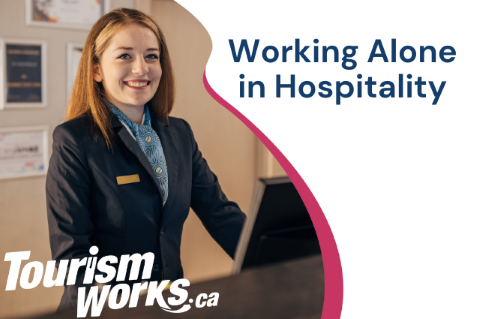

Working alone in the context of OHS legislation, refers to employees who work by themselves at a site where assistance is not readily available in the event of injury, illness or emergency. Working alone a hazard recognized by law. Employers must address working alone in their hazard assessment and ensure to implement health and safety measures to eliminate or control related hazards to employees. Employers must fulfill several requirements in the OHS Code if they have employees who work alone. What does readily available mean? Three factors determine whether assistance is readily available in the event of an injury, illness or emergency:
When determining the availability and amount of assistance necessary, consider:
If the dangers could result in serious injury, people capable of helping should be ready and able to come right away. Working alone situations could also present additional hazards that require specific controls. For example, working alone in a hotel risks placing an employee in a vulnerable situation, which can lead to more opportunity for assault or unwelcome behaviour from other employees, service providers or even guests.

Employers with employees who work alone must conduct a hazard assessment (a systematic review of the property to identify hazards and take steps to eliminate or control them) to identify existing or potential health and safety hazards related to working alone. 
Effective Communication Anyone working alone must be able to contact their employer or someone capable of helping in an emergency. Some of the key tools for effective communication include:
When working alone in hospitality, prioritize safety above all. Make sure your employees know the hazards and follow all policies and procedures in place. Emphasize for your staff that their well-being matters most, and encourage them to always work smart and stay safe.

Resources